Speakers are one of the most important components of any electronic device that produces sound. They come in all shapes and sizes, but their basic function is to convert electrical signals into sound waves that we can hear.
If you're troubleshooting your speaker system and want to make sure that the sound is coming from the speakers and not somewhere else, testing the speaker output with a multimeter is a quick and easy way to do so. Follow these simple steps and you'll be able to test whether the sound is coming from the speaker or not in just a few minutes.
What You'll Need:-
- Multimeter
- Speaker
- Electrical tape
- Wire strippers
What is a multimeter?
A multimeter is a testing tool used to measure electrical properties like the voltage, current, and resistance. It can also be used to test continuity and test for AC or DC signals. Multimeters are an essential piece of equipment for any electrician or electronic technician.
There are many different types of multimeters on the market, from basic models that only measure voltage to more advanced units that can measure a variety of electrical properties. Some multimeters even have built-in features like temperature measurement or frequency measurement. No matter what type of multimeter you need, there is sure to be one on the market that meets your needs.

So why do you need a multimeter?
Well, if you want to test any electrical device, a multimeter is an essential tool. It can be used to troubleshoot electrical problems, test for shorts or leaks, and check for voltage, current, and resistance. A multimeter can also be used to test continuity and make sure that there are no breaks in an electrical circuit.
In short, a multimeter is a versatile tool that every electrician or electronic technician should have in their toolkit. So if you find yourself in need of one, don't hesitate to pick one up - it might just come in handy!
How to test speaker output with a multimeter?
- Check the condition of the wires and connectors. Make sure that there are no bare wires or exposed metal.
- Set the multimeter to the ohms setting.
- Place the leads on the two terminals of the speaker. If the speaker is working properly, you should see a reading of close to zero ohms.
- If you see a reading of infinity, this means that the speaker is not working correctly and will need to be replaced.
- If you see a reading of zero ohms, this means that the speaker is working correctly.
- Now test the other speakers in the same way. Make sure to check all of the speakers in your system to ensure that they are all working properly.
- If you find that one of the speakers is not working, you may need to replace it.
- Once you have checked all of the speakers, you can now enjoy your music with peace of mind knowing that your system is working properly.
How do you check the speaker wire voltage multimeter?
To check the voltage of your speaker wire, you will need to use a multimeter.
First, set the multimeter to the "DC Voltage" setting.
Next, touch the black lead of the multimeter to the negative (black) speaker wire, and touch the red lead of the multimeter to the positive (red) speaker wire.
The multimeter will then give you a reading in volts. Generally speaking, you should be looking for a voltage reading of around 10-12 volts. If your voltage reading is significantly higher or lower than this, it could indicate a problem with your speaker wire.
Possible Causes of Speaker Problems
There are many potential causes of speaker problems, and most of them can be traced back to issues with the speaker itself, the audio source, or the connection between the two. Here are some of the most common causes of speaker problems:
Damaged Speakers:
If your speakers are damaged, they may not produce the sound correctly, or at all. Speaker damage can be caused by physical trauma (such as being dropped), water damage, or simply age and wear and tear.
Incorrect Speaker Connection:
If your speakers are not properly connected to the audio source, they may not produce sound. Make sure that the speaker cables are securely connected to both the speakers and the audio source.
Loose Speaker Cables:
If the speaker cables are loose, they may cause sound problems. Make sure that the cables are firmly connected at both ends.
Audio Source Problems:
If the audio source is not working correctly, it may be causing your speaker problems. Make sure that the audio source is turned on and functioning properly.
Incompatible Audio Source:
If the audio source is not compatible with the speakers, it may not work correctly. Make sure that the audio source and the speakers are compatible before using them together.
Dirty or Damaged Speaker Connections:
If the speaker connections are dirty or damaged, they may cause sound problems. Clean the connections with a clean, dry cloth, and make sure that they are free of dirt, dust, and other debris.
Low-Quality Audio Files:
If you are using low-quality audio files, they may not play correctly on your speakers. Use high-quality audio files to avoid this problem.
Interference from Other Devices:
If other devices are causing interference, it may affect the sound quality of your speakers. Move the speakers away from other electronic devices to reduce interference.
Frequently Asked Questions:
Can I use a multimeter to test the speaker wire?
Yes, you can use a multimeter to test the speaker wire. You will need to set the multimeter to the ohms setting and touch the probes to the ends of the speaker wire. If the wire is good, then the multimeter should read a low resistance. If the multimeter reads a high resistance, then the wire is most likely faulty and needs to be replaced.
How many volts should be at the speakers?
This is a difficult question to answer as it depends on the specific speakers in question and the particular application. In general, however, most speakers will operate within a voltage range of around 5-12 volts. The specific requirements will be listed in the speaker's documentation. If you are unsure, it is always best to consult with a qualified professional to ensure that your speakers are getting the correct voltage.
Are speakers DC or AC?
This is a common question that we get asked all the time. The answer is: it depends. Some speakers are AC-powered, while others may be DC-powered. It just depends on the specific speaker and what it is designed for. Generally speaking, however, most speakers are going to be AC-powered. This is because AC power is more stable and can provide a stronger signal than DC power. Additionally, AC power is more commonly available in homes and businesses, making it the more convenient option for powering speakers. However, there are some exceptions to this rule. Some portable speakers, for example, may be powered by DC batteries. Ultimately, it just depends on the speaker in question. If you're unsure about whether or not your particular speaker is AC or DC-powered, you can always check the documentation that came with it.
Conclusion:
In conclusion, testing your speaker output with a multimeter is a quick and easy way to ensure that your speakers are functioning properly. By following the steps outlined in this article, you can easily test your speaker wire and confirm that your speakers are receiving the proper signal. Additionally, testing the resistance of your speaker wire can also help you determine if there are any breaks or shorts in the wire. By testing your speaker output regularly, you can ensure that your audio system is always performing at its best.


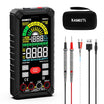

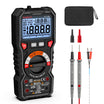
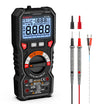
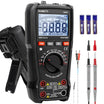
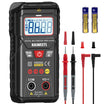
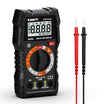

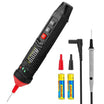


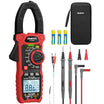
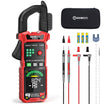
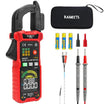
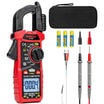


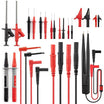



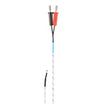
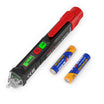
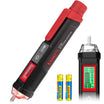
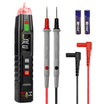
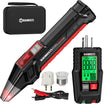
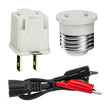
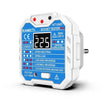
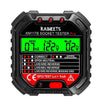
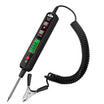
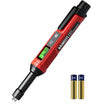
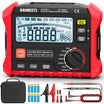
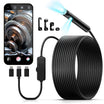
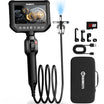
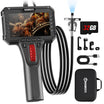
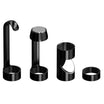
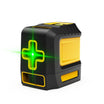
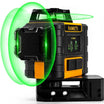
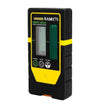
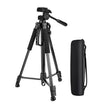
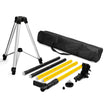



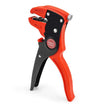
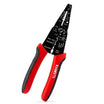
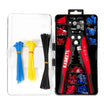


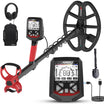
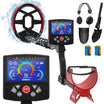


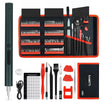

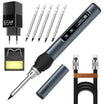
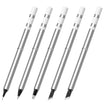

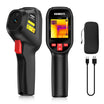
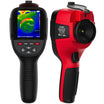
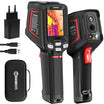
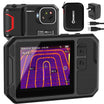
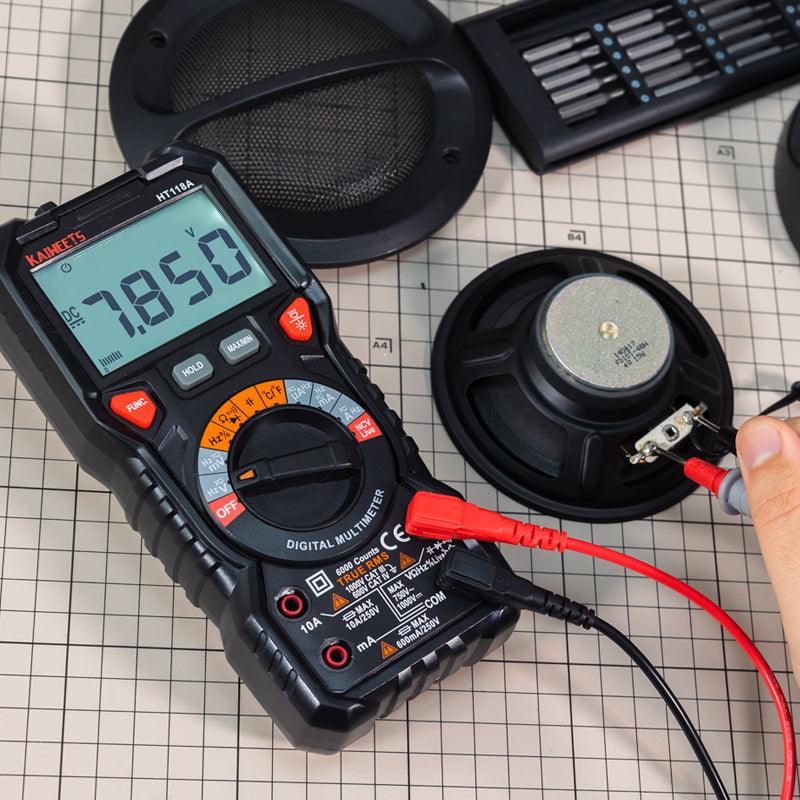



Commenta
Nota che i commenti devono essere approvati prima di essere pubblicati.
Questo sito è protetto da hCaptcha e applica le Norme sulla privacy e i Termini di servizio di hCaptcha.